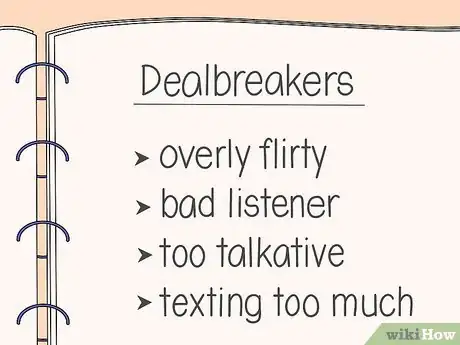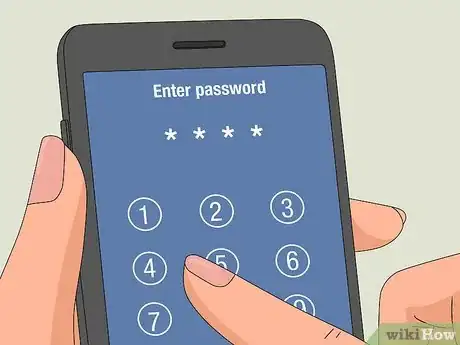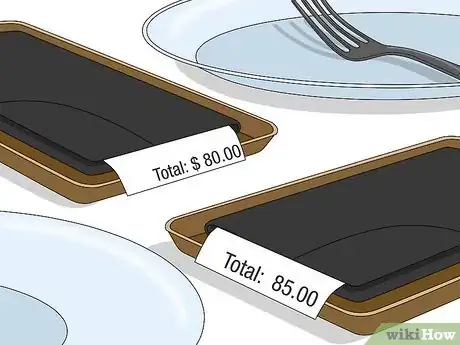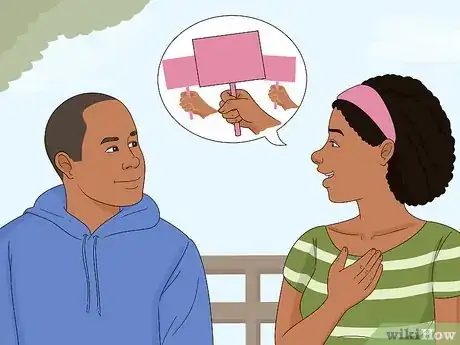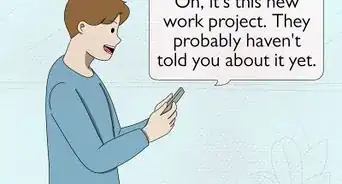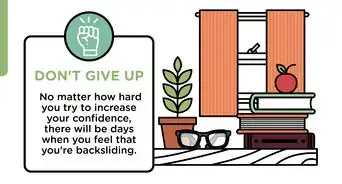This article was co-authored by Shana Tibi and by wikiHow staff writer, Kira Jan. Shana Tibi is a Certified Professional Matchmaker, Date and Relationship Coach, and the Founder of Curated Connections, a matchmaking service for single professionals. Shana specializes in understanding core values and personal preferences to curate dates. She holds a BA in Peace Studies and Conflict Resolution from Prescott College and an MSW in Social Work from California State University, Hayward. She is an active member of the Global Love Institute where she earned her matchmaking certifications.
There are 15 references cited in this article, which can be found at the bottom of the page.
This article has been viewed 18,998 times.
You might feel guilty or awkward about setting boundaries, but boundaries are important for protecting yourself emotionally and physically. As you start seeing a new guy, it’s the perfect time to reconnect with your wants and needs in a relationship—and to get him on the same page! We’ll walk you through exactly how to get in touch with your boundaries and how to have specific conversations about your rules with confidence and ease.
Steps
Expert Q&A
-
QuestionWhat do you do when someone crosses boundaries?
 Shana TibiShana Tibi is a Certified Professional Matchmaker, Date and Relationship Coach, and the Founder of Curated Connections, a matchmaking service for single professionals. Shana specializes in understanding core values and personal preferences to curate dates. She holds a BA in Peace Studies and Conflict Resolution from Prescott College and an MSW in Social Work from California State University, Hayward. She is an active member of the Global Love Institute where she earned her matchmaking certifications.
Shana TibiShana Tibi is a Certified Professional Matchmaker, Date and Relationship Coach, and the Founder of Curated Connections, a matchmaking service for single professionals. Shana specializes in understanding core values and personal preferences to curate dates. She holds a BA in Peace Studies and Conflict Resolution from Prescott College and an MSW in Social Work from California State University, Hayward. She is an active member of the Global Love Institute where she earned her matchmaking certifications.
Certified Professional Matchmaker Stop and think about your relationship overall. Ask yourself questions like "Is this relationship working for me?" and "Which boundaries are negotiable and which ones aren't?"
Stop and think about your relationship overall. Ask yourself questions like "Is this relationship working for me?" and "Which boundaries are negotiable and which ones aren't?" -
QuestionWhy do boundaries matter?
 Shana TibiShana Tibi is a Certified Professional Matchmaker, Date and Relationship Coach, and the Founder of Curated Connections, a matchmaking service for single professionals. Shana specializes in understanding core values and personal preferences to curate dates. She holds a BA in Peace Studies and Conflict Resolution from Prescott College and an MSW in Social Work from California State University, Hayward. She is an active member of the Global Love Institute where she earned her matchmaking certifications.
Shana TibiShana Tibi is a Certified Professional Matchmaker, Date and Relationship Coach, and the Founder of Curated Connections, a matchmaking service for single professionals. Shana specializes in understanding core values and personal preferences to curate dates. She holds a BA in Peace Studies and Conflict Resolution from Prescott College and an MSW in Social Work from California State University, Hayward. She is an active member of the Global Love Institute where she earned her matchmaking certifications.
Certified Professional Matchmaker Boundaries help people feel safe, comfortable, respected and loved, which makes them a super important part of any relationship.
Boundaries help people feel safe, comfortable, respected and loved, which makes them a super important part of any relationship.
References
- ↑ Shana Tibi. Certified Professional Matchmaker. Expert Interview. 19 October 2021.
- ↑ https://www.loveisrespect.org/resources/what-are-my-boundaries/
- ↑ https://www.npr.org/2021/01/25/960423678/how-to-set-boundaries-with-family-and-stick-to-them
- ↑ https://www.loveisrespect.org/resources/what-are-my-boundaries/
- ↑ https://psychcentral.com/blog/how-to-figure-out-your-boundaries
- ↑ Shana Tibi. Certified Professional Matchmaker. Expert Interview. 19 October 2021.
- ↑ https://www.loveisrespect.org/resources/what-are-my-boundaries/
- ↑ https://www.loveisrespect.org/resources/digital-boundaries/
- ↑ https://www.ny.gov/teen-dating-violence-awareness-and-prevention/what-does-healthy-relationship-look
- ↑ https://www.chicagotribune.com/lifestyles/sc-fam-social-graces-loan-new-relationship-1002-story.html
- ↑ Shana Tibi. Certified Professional Matchmaker. Expert Interview. 19 October 2021.
- ↑ https://www.psychologytoday.com/us/blog/working-through-shame/201907/5-steps-better-emotional-boundaries
- ↑ https://www.psychologytoday.com/us/blog/working-through-shame/201907/5-steps-better-emotional-boundaries
- ↑ https://www.ny.gov/teen-dating-violence-awareness-and-prevention/what-does-healthy-relationship-look
- ↑ https://www.ny.gov/teen-dating-violence-awareness-and-prevention/what-does-healthy-relationship-look
- ↑ https://psychcentral.com/depression/how-to-help-partner-with-depression
- ↑ https://www.plannedparenthood.org/learn/teens/relationships/all-about-communication/saying-no-sex
- ↑ https://www.loveisrespect.org/resources/physical-boundaries/
- ↑ https://www.loveisrespect.org/resources/physical-boundaries/
- ↑ https://psychcentral.com/lib/10-way-to-build-and-preserve-better-boundaries
- ↑ https://www.loveisrespect.org/resources/physical-boundaries/
- ↑ https://psychcentral.com/lib/10-way-to-build-and-preserve-better-boundaries
- ↑ https://kidshelpline.com.au/teens/issues/being-assertive-and-setting-boundaries
- ↑ https://www.uky.edu/hr/sites/www.uky.edu.hr/files/wellness/images/Conf14_Boundaries.pdf
- ↑ https://www.psychologytoday.com/us/blog/couples-thrive/202011/how-set-and-respect-boundaries-your-spouse
